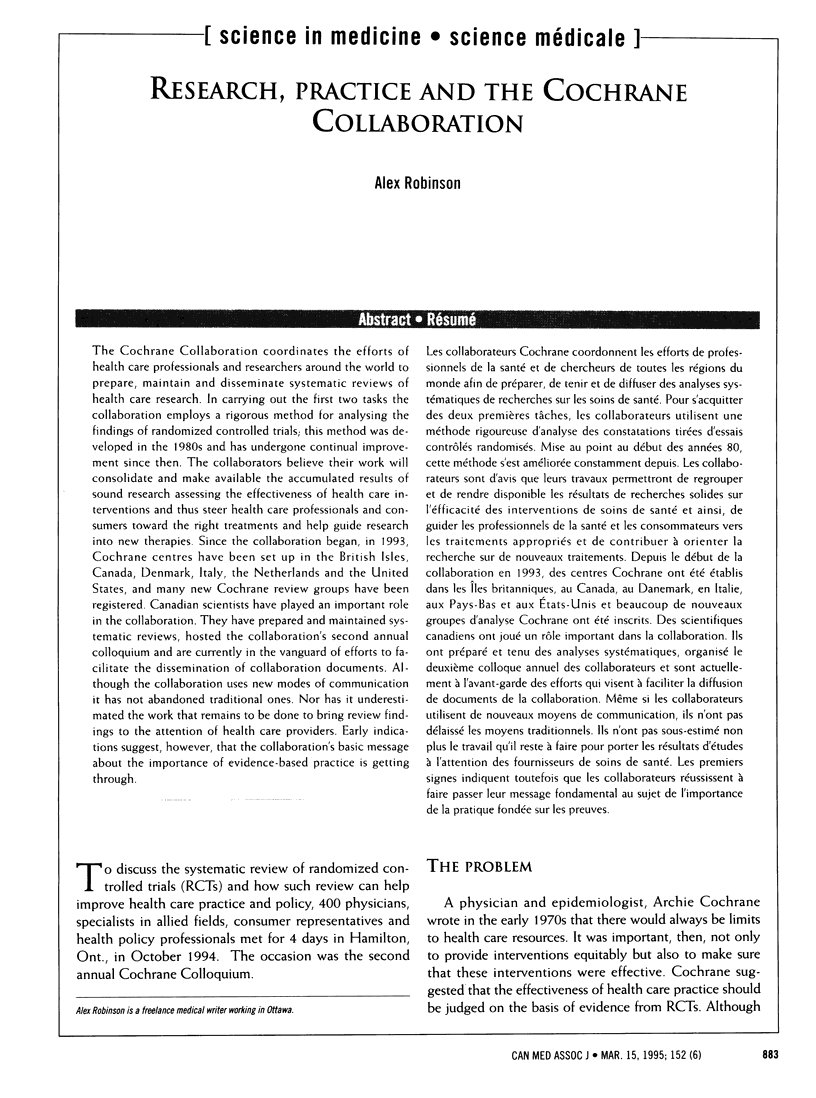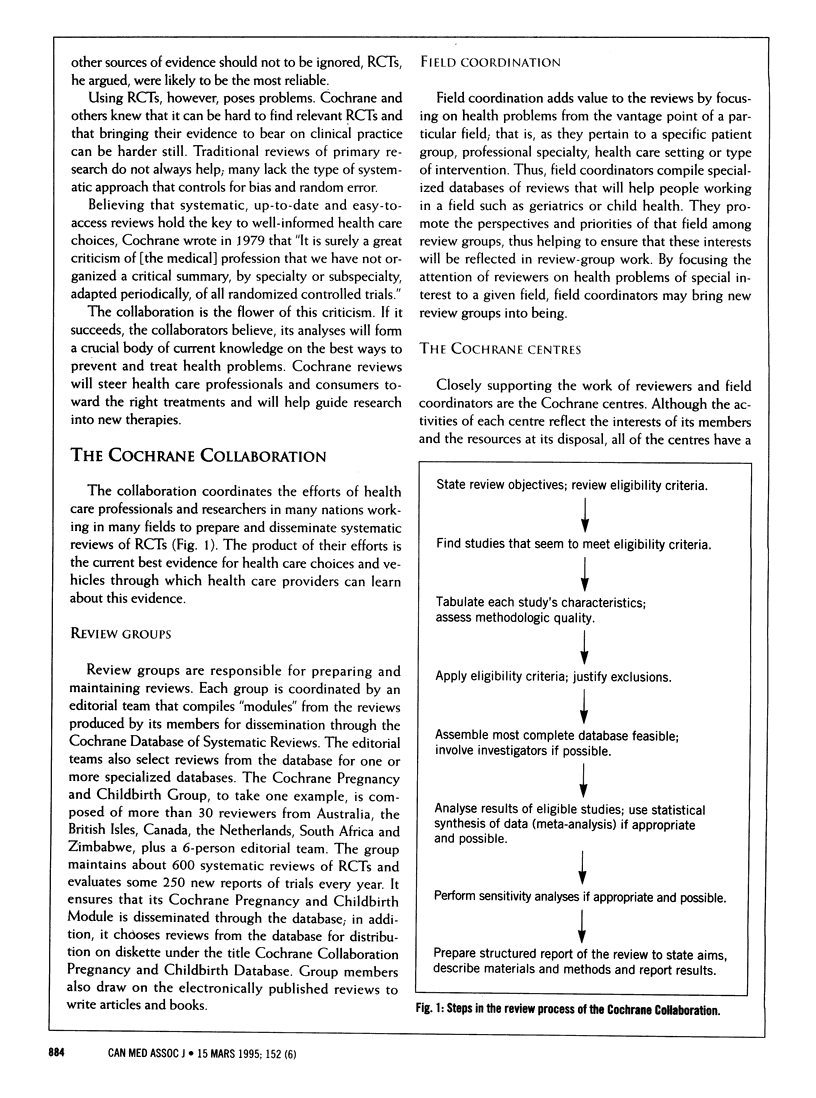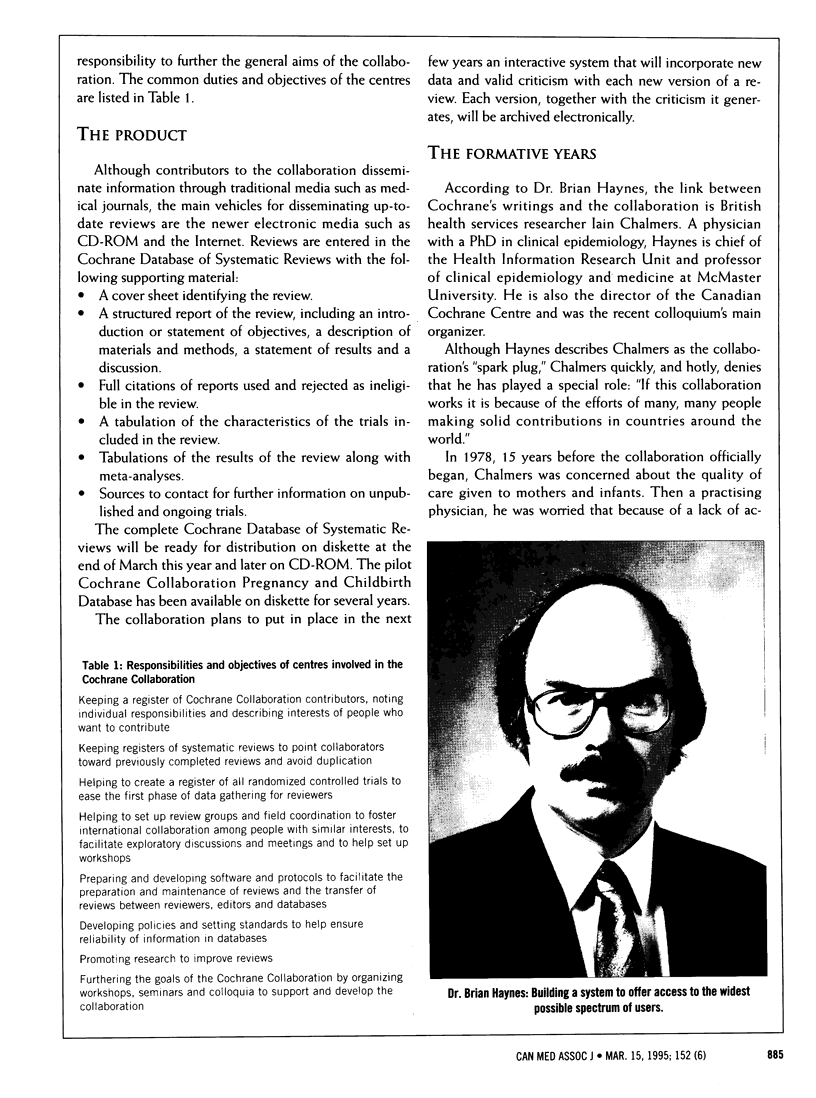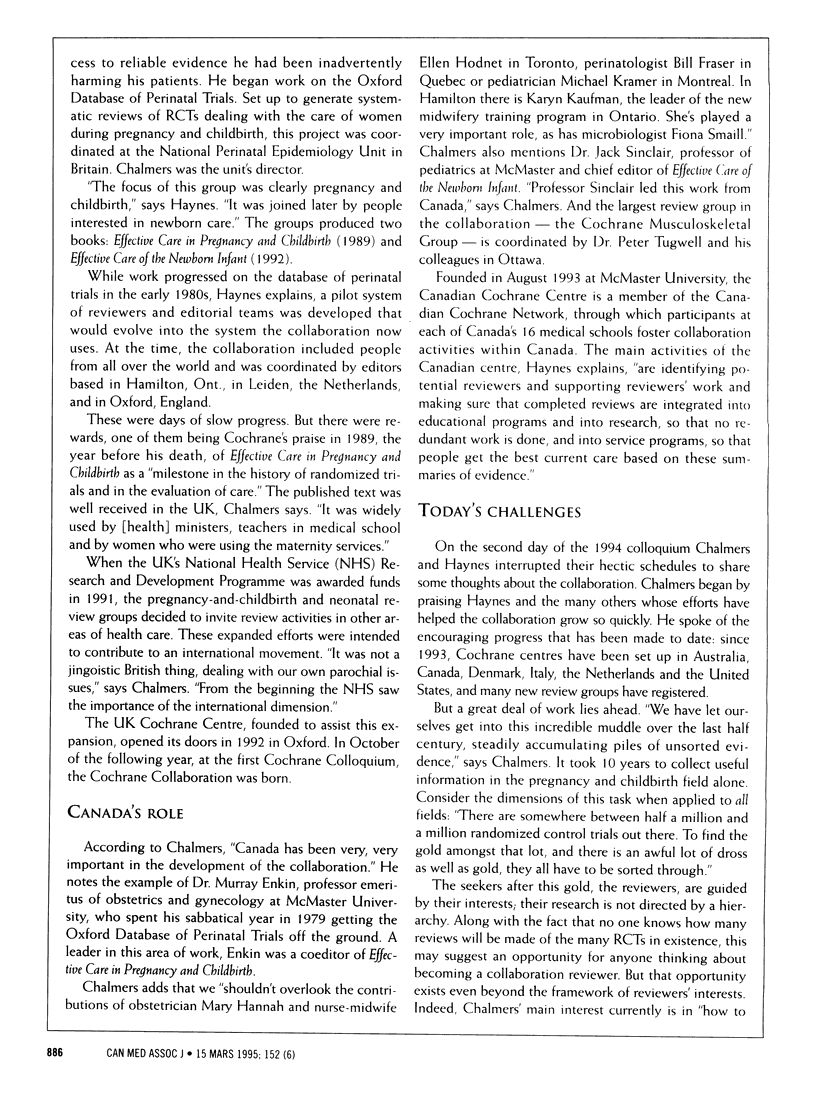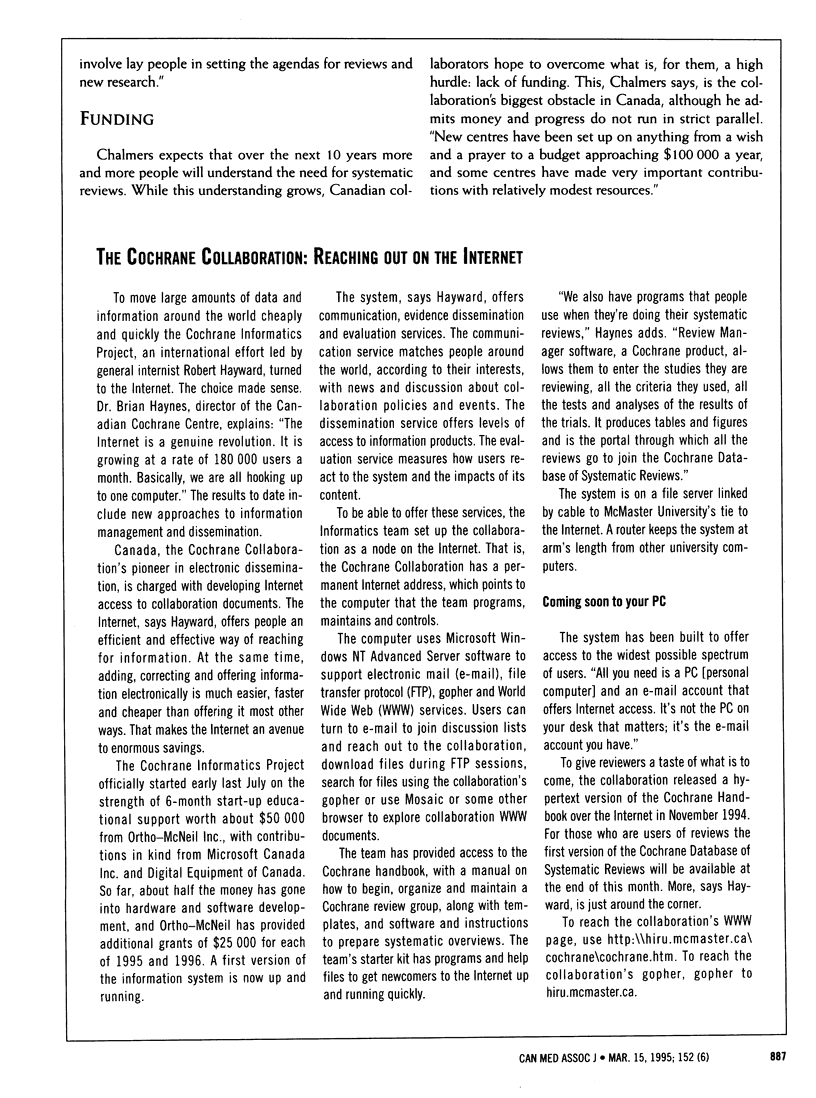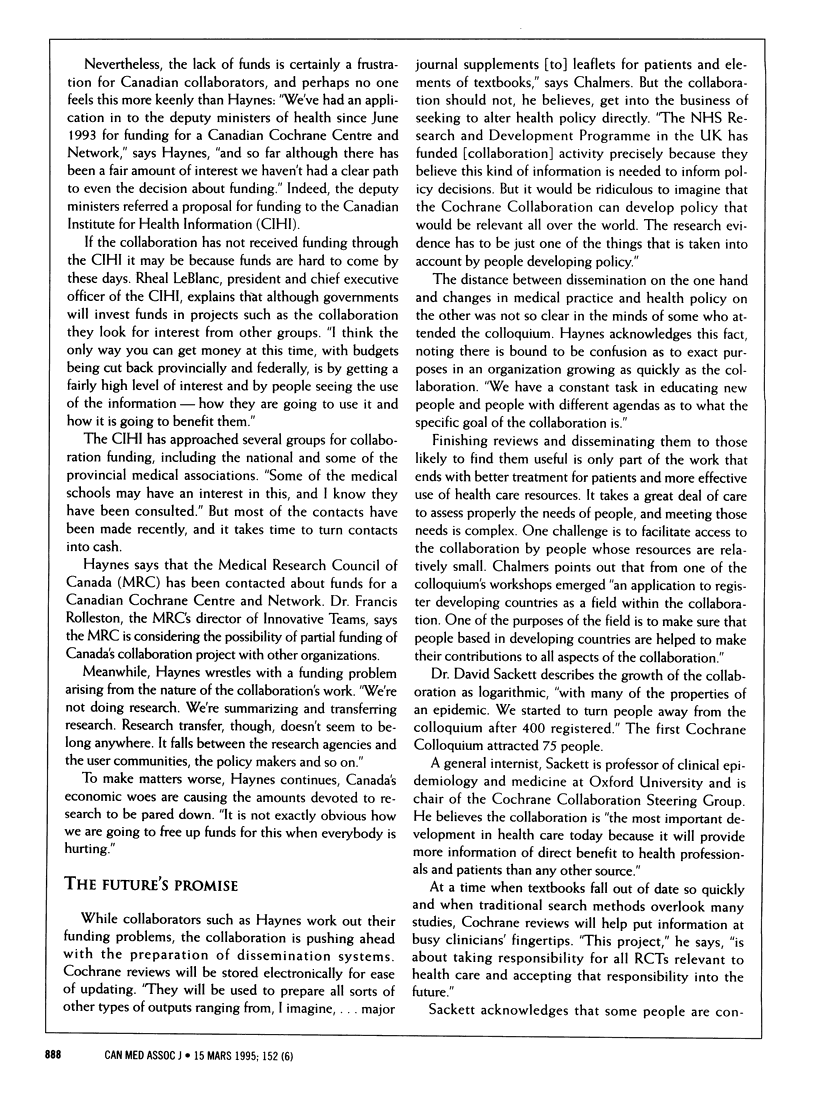Abstract
The Cochrane Collaboration coordinates the efforts of health care professionals and researchers around the world to prepare, maintain and disseminate systematic reviews of health care research. In carrying out the first two tasks the collaboration employs a rigorous method for analysing the findings of randomized controlled trials; this method was developed in the 1980s and has undergone continual improvement since then. The collaborators believe their work will consolidate and make available the accumulated results of sound research assessing the effectiveness of health care interventions and thus steer health care professionals and consumers toward the right treatments and help guide research into new therapies. Since the collaboration began, in 1993, Cochrane centres have been set up in the British Isles, Canada, Denmark, Italy, the Netherlands and the United States, and many new Cochrane review groups have been registered. Canadian scientists have played an important role in the collaboration. They have prepared and maintained systematic reviews, hosted the collaboration's second annual colloquium and are currently in the vanguard of efforts to facilitate the dissemination of collaboration documents. Although the collaboration uses new modes of communication it has not abandoned traditional ones. Nor has it underestimated the work that remains to be done to bring review findings to the attention of health care providers. Early indications suggest, however, that the collaboration's basic message about the importance of evidence-based practice is getting through.
Full text
PDF